The Year of MAGA: Making Abortions Great Again. By Dr Suchitra Dalvie
Ok…… so now that we have your attention 🙂 we wanted to take this opportunity to remind all of us working on safe abortion rights advocacy that Change is Possible, Change is Inevitable and Change did Happen!
Despite the terrible year that was 2020, some incredible breakthroughs took place in our world and we wanted to start the New Year by celebrating those wins— by taking a moment to breathe and recharge ourselves and by renewing our commitment to this issue. In Asia we had some amazing news from Thailand in November last year as the Cabinet approved amending existing legislation. The change in law which is expected to come into effect in February this year, aims to allow women to seek and have abortions up to 12 weeks into their pregnancy. The official statement issued by the government said that the cabinet found the existing laws to be a “restriction on women’s rights” and contradictory to the “the constitution which dictates people have freedom over their lives and bodies.” (Currently, women seeking a termination can receive a prison sentence of up to three years and a 60,000 baht ($1,980) fine.)
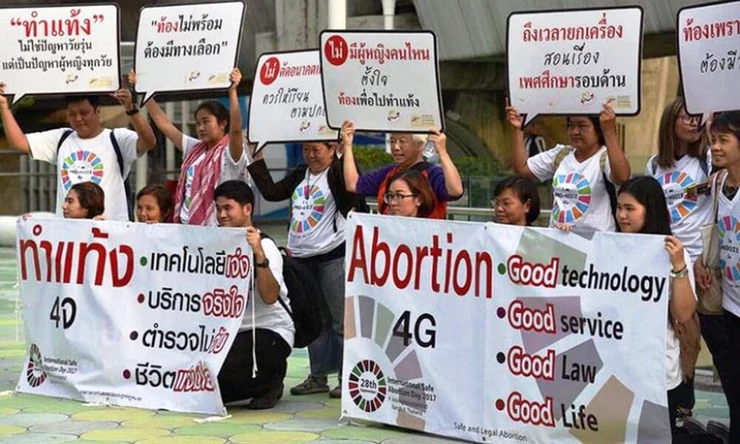
In South Korea too abortion was decriminalized, effective 2021, by an order of the Constitutional Court. The government of South Korea had criminalized abortion in the 1953 Criminal Code in all circumstances. The law was amended by the Maternal and Child Health Law of 1973 to permit a physician to perform an abortion if the pregnant woman or her spouse suffers from certain hereditary or communicable diseases, if the pregnancy results from rape or incest, or if continuing the pregnancy would jeopardize the woman’s health.
In India the Medical Termination of Pregnancy Act of 1971 is being amended and a Bill was passed in one house of parliament before the country went into pandemic lockdown in March. Although the preamble of the proposed amendment includes progressive language, unfortunately the content and clauses of the new version are likely to create more barriers than make access universal and safe. So, many advocacy groups are working on the issue but one way or another, change is happening
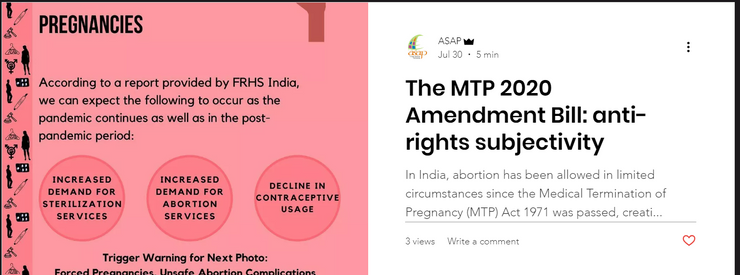
Globally also there was progress and in fact some of it went beyond legal change and radically transformed service delivery.
The pandemic and the resulting lack of access prompted the United Kingdom as well as New Zealand to approve the use of telemedicine for early medical abortion. In the UK they are intended only as temporary measures for the duration of the pandemic response but advocacy groups are already questioning whether trying to backtrack post pandemic would be considered to represent regressive and harmful policy.
New Zealand has not only reformed its abortion laws to allow it without restrictions up to 20 weeks, but has also approved of telemedicine for early medical abortion. Before the law changed, early medical abortions required two trips to the clinic to take the two medicines, taken 24 – 48 hours apart on clinic premises. The most dangerous part of the abortion was literally driving to and from the clinic!
And then at the very cusp of the transition from last year to this one came the incredible news from Argentina which became the largest Latin American country to legalise abortion up to the 14th week of pregnancy after the bill was approved on 30th December 2020!! The decision is ground-breaking given that the majority Roman Catholic country had some of the world’s most restrictive abortion laws. Thousands in the country took to streets and cheered while waving green handkerchiefs in what is called ‘La Marea Verde’ or the ‘Green Wave’. Pro-choice activists had campaigned for years to change the abortion laws that date from 1921, adopting a green scarf as their symbol—inspired by the handkerchief that was used as a symbol of women’s rights and resistance by the grandmothers of the Plaza de Mayo at Buenos Aires in Argentina, who donned white kerchiefs to protest against the killings and kidnappings during the dictatorship.

Looking further back one can add to this basket of wins the Yes campaign of 2018 that saw Ireland vote overwhelmingly to overturn the abortion ban. One of the key cases influencing the debate on abortion in Ireland was that of Indian dentist Savita Halappanavar, who died of sepsis in a hospital in Galway after being denied an abortion during a protracted miscarriage in 2012.
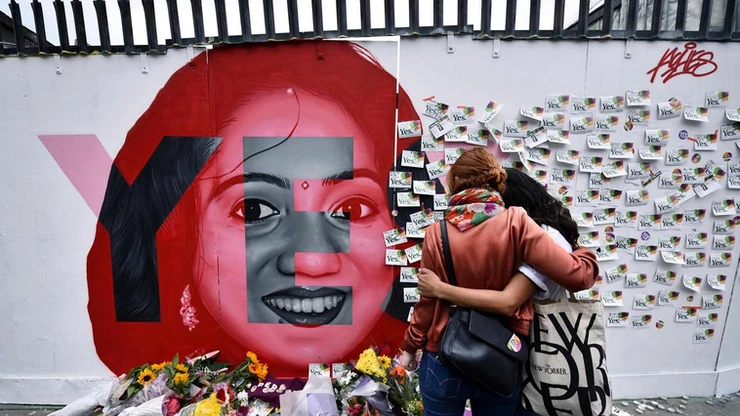
In 2013, France which already had liberal abortion laws, introduced reforms by which the any woman who chooses to can have an abortion for free and the cost will be covered by the State.
Even further back we saw Nepal, after centuries of draconian and cruel abortion criminalization, change to a genuinely liberal law in 2002. Prior to this, up to one-fifth of incarcerated women were convicted for abortion-related crimes. Data from one hospital-based study attributed more than half of maternal deaths during the one-year study period to unsafe abortion-related complications. Then a landmark 2009 Supreme Court decision in Lakshmi Dhikta v. Nepal not only reinforced the right to abortion but also emphasized that access to abortion is a human right. The court held the government accountable for building the necessary institutions and implementing policies to make abortion services affordable and accessible.
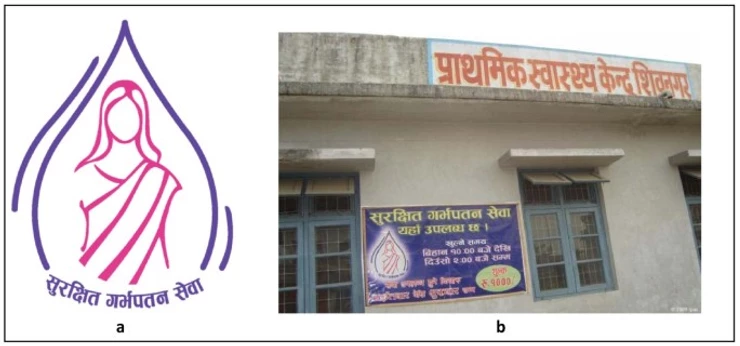
So while the work we do on a daily basis may seem difficult and futile and relentlessly challenging and the changes we can make happen not big enough or not far reaching enough, or not dramatic enough, we need to remind ourselves that shifting power always takes time and effort and sacrifices. What we take for granted today was unthinkable a generation ago and our work will create a similar paradigm shift for the next generation!
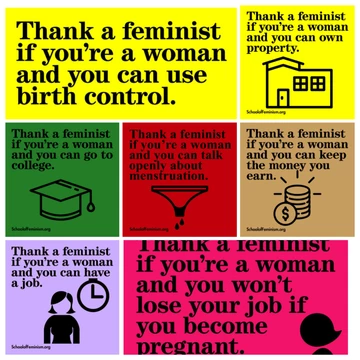
Of course challenges still remain in so many countries despite all the progress and successes.
In a country like Poland there were ongoing protests thanks to the persistent efforts of the conservative government to further tighten the already restrictive abortion access. It is being called the “cardboard revolution” in reference to the handmade placards that have become a distinctive feature of the protests, but what is more striking about the movement is the age of those holding those placards! Most participants appear to be in their early twenties, many bearing the distinctive red lightning bolt symbol first used in the strikes and marking a new era for the Polish feminist movement.
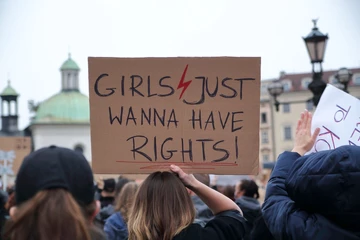
Young people have swelled the ranks of the pro-choice movement and the effects have been palpable. As one organiser explained, “Young people are uncompromising, they do not want to ‘get along’. They have grown up with a sense of freedom and now someone wants to take it away from them”.
We have seen this with the work being done by the Youth Champions and the Country Advocacy Networks of ASAP that young people are bringing passion, commitment, energy, creativity and power to the movement for safe abortion rights! We strongly believe that progress is not only possible, progress is inevitable!
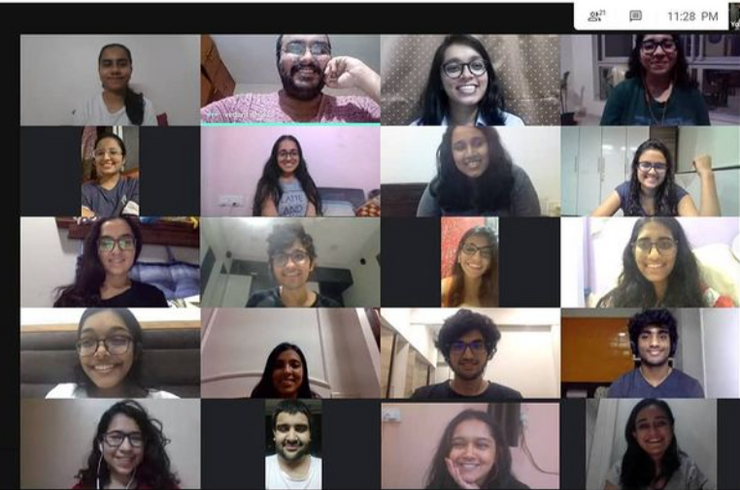
Still from ‘The Abortion Curriculum’ online gender sensitization classes for medical students organized by CAN from India – India Safe Abortion Youth Advocates
Check out our Annual Report from 2020, for more info on our Country Advocacy Networks
As earlier generations of activists and advocates pass the baton to the newer ones, there is much to learn for all generations involved because young horses may run fast but old horses know the way!!
At ASAP we are looking forward to the start of a new decade where we can create a larger movement of advocacy around the issue and truly make safe abortion rights ( AND dismantling the patriarchy AND speaking truth to power AND universal healthcare) great again!





